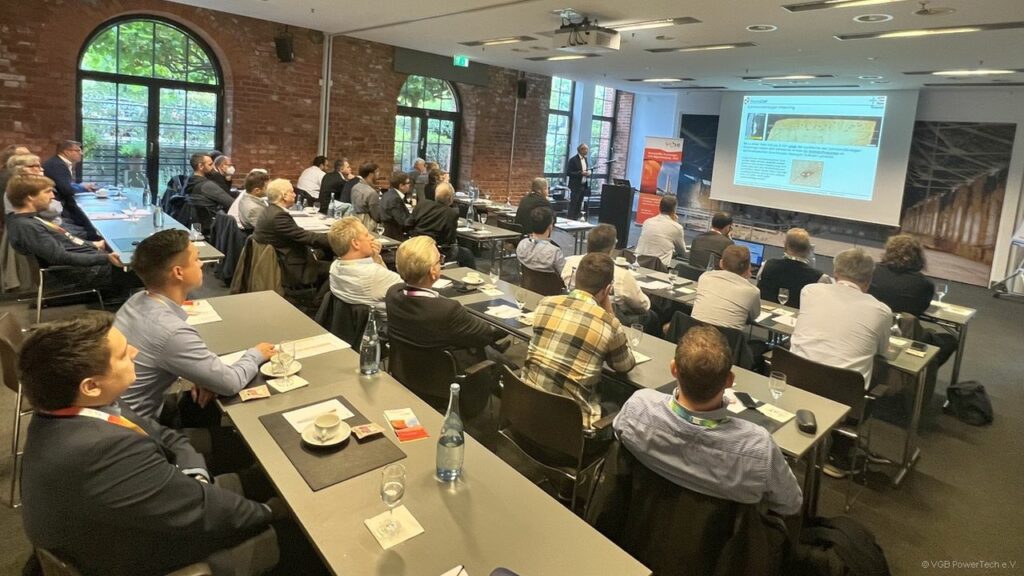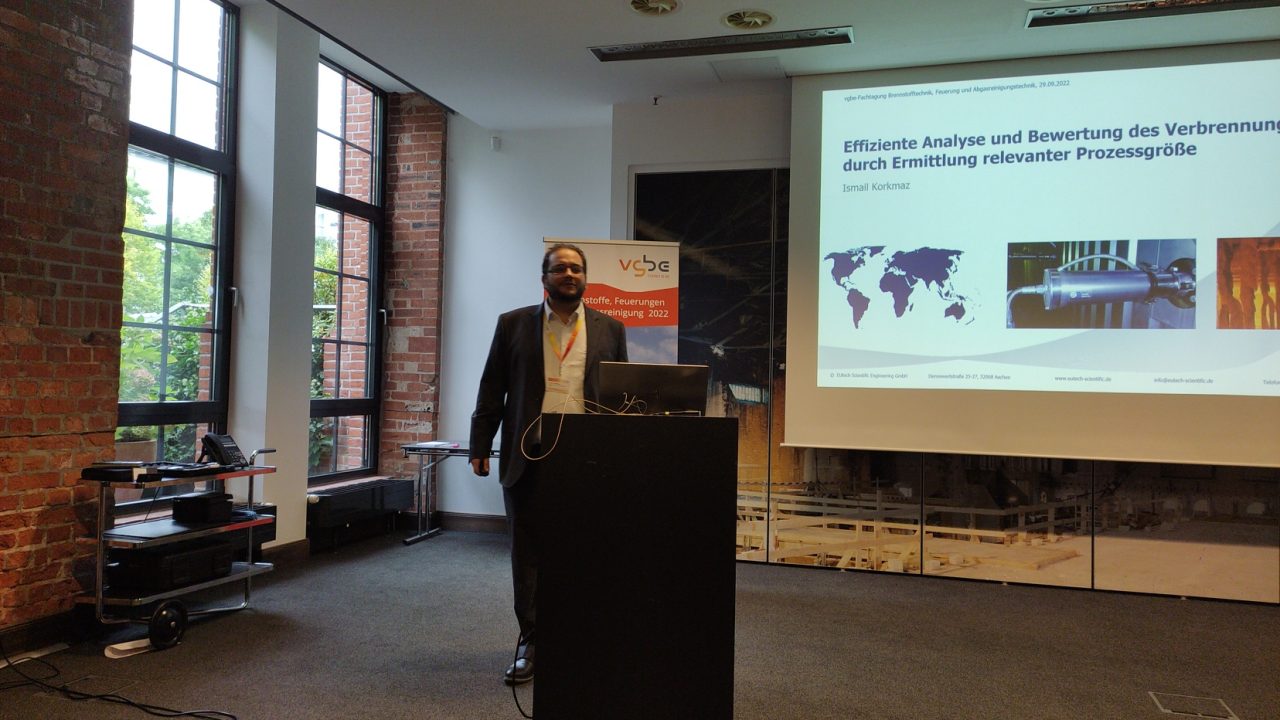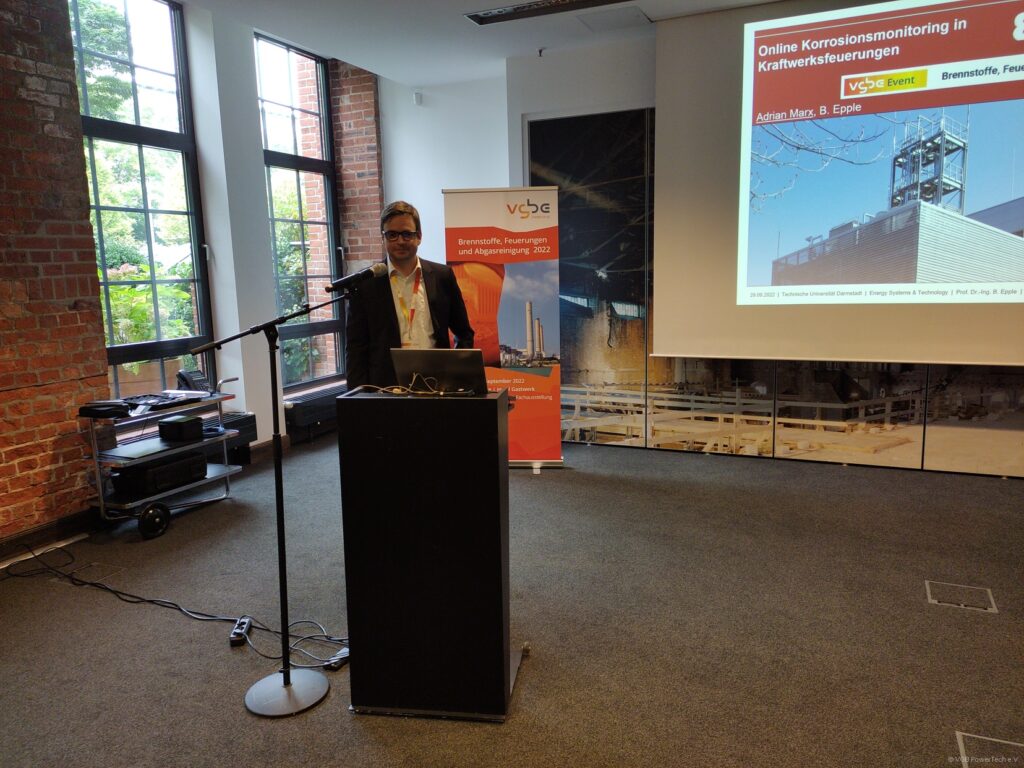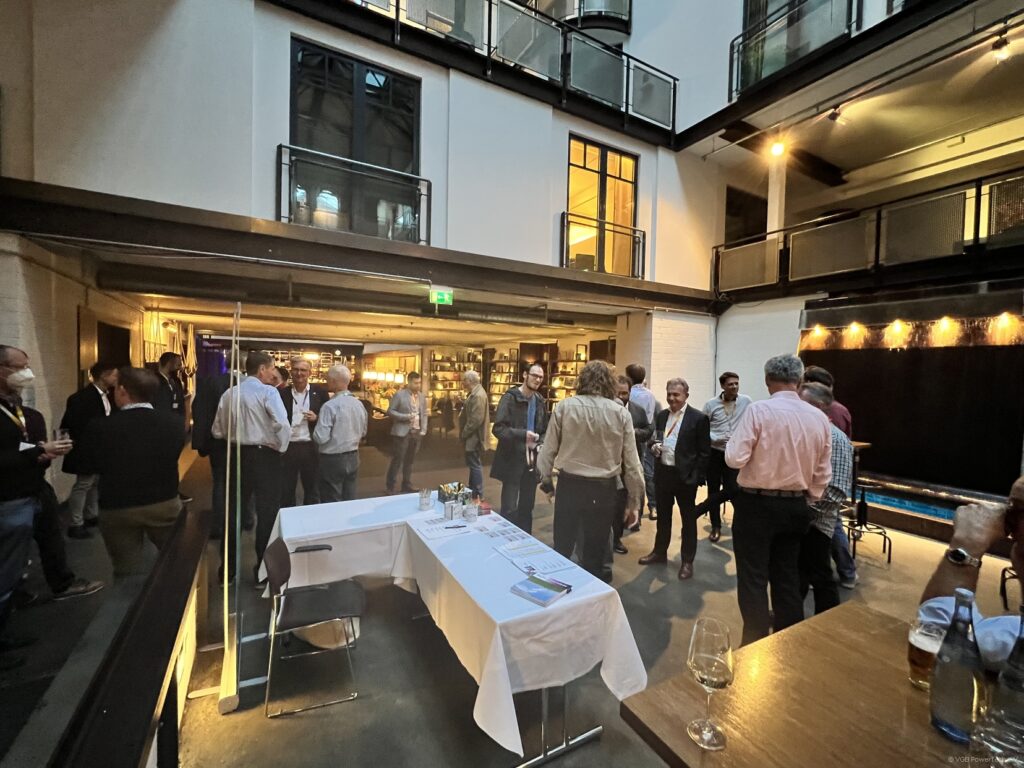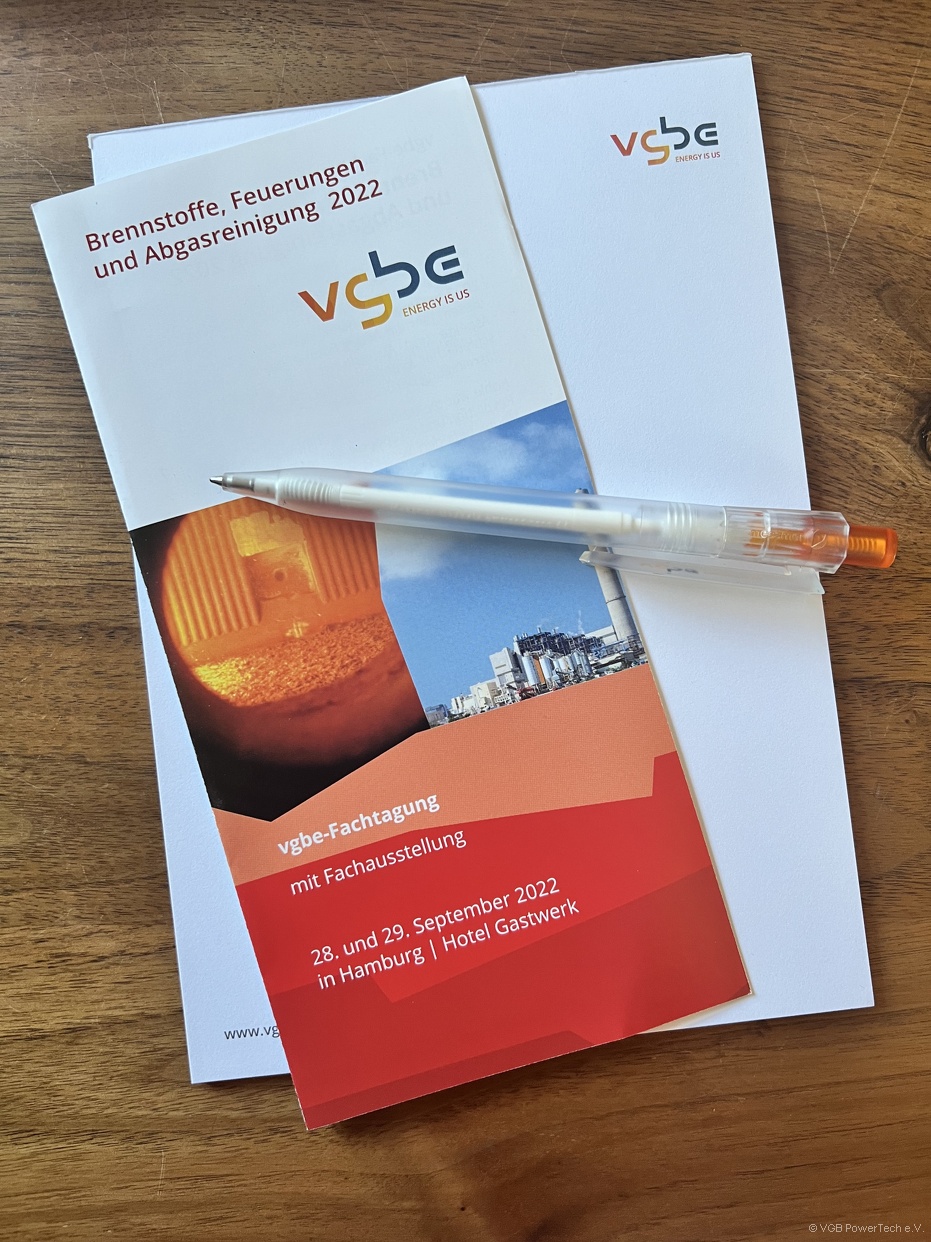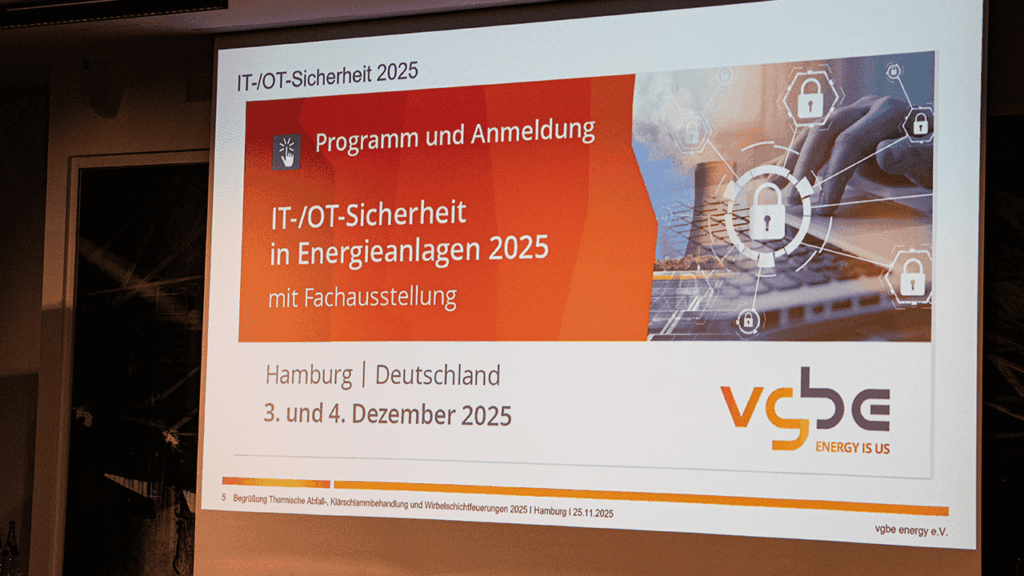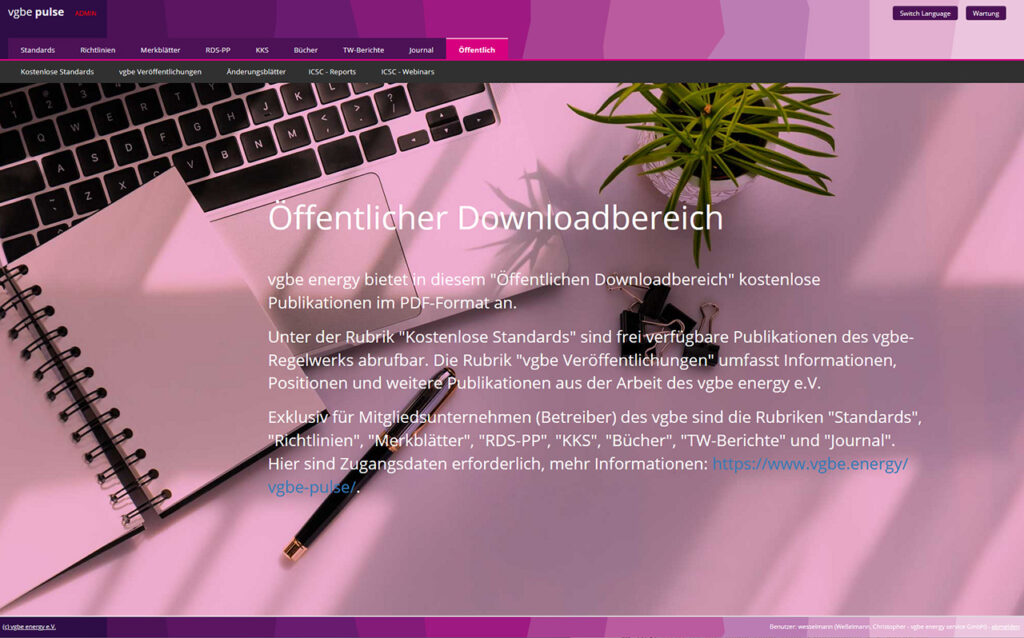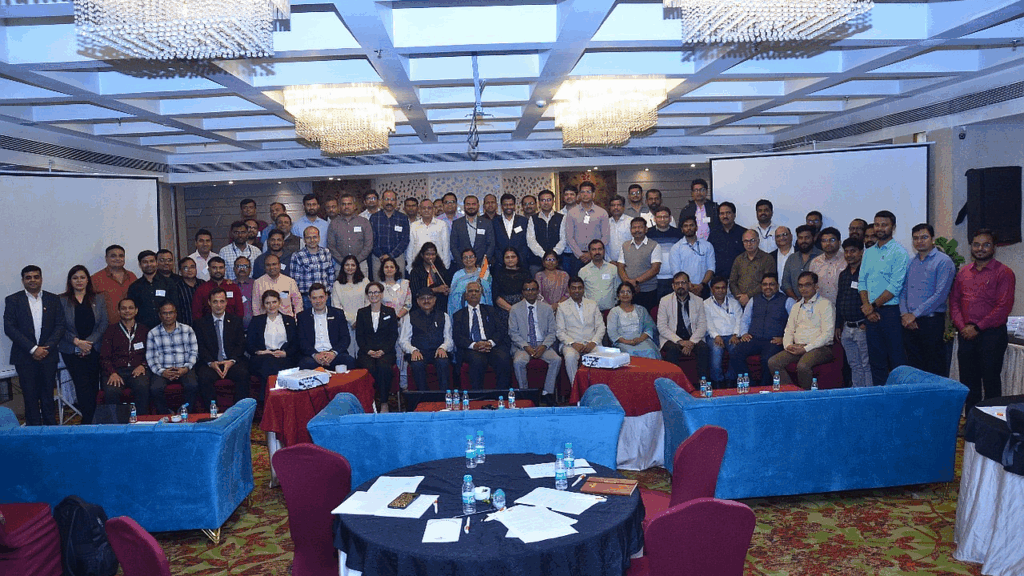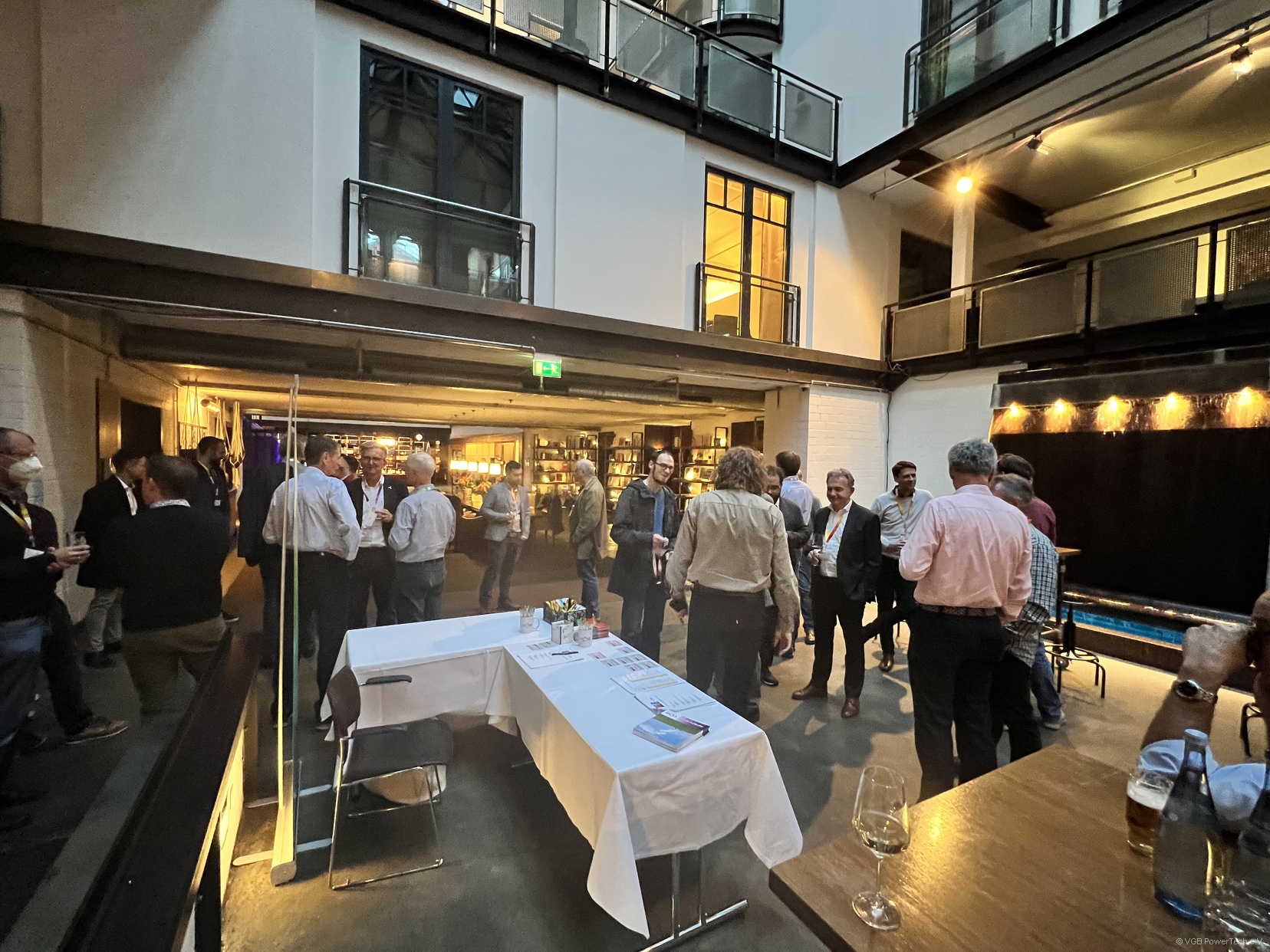
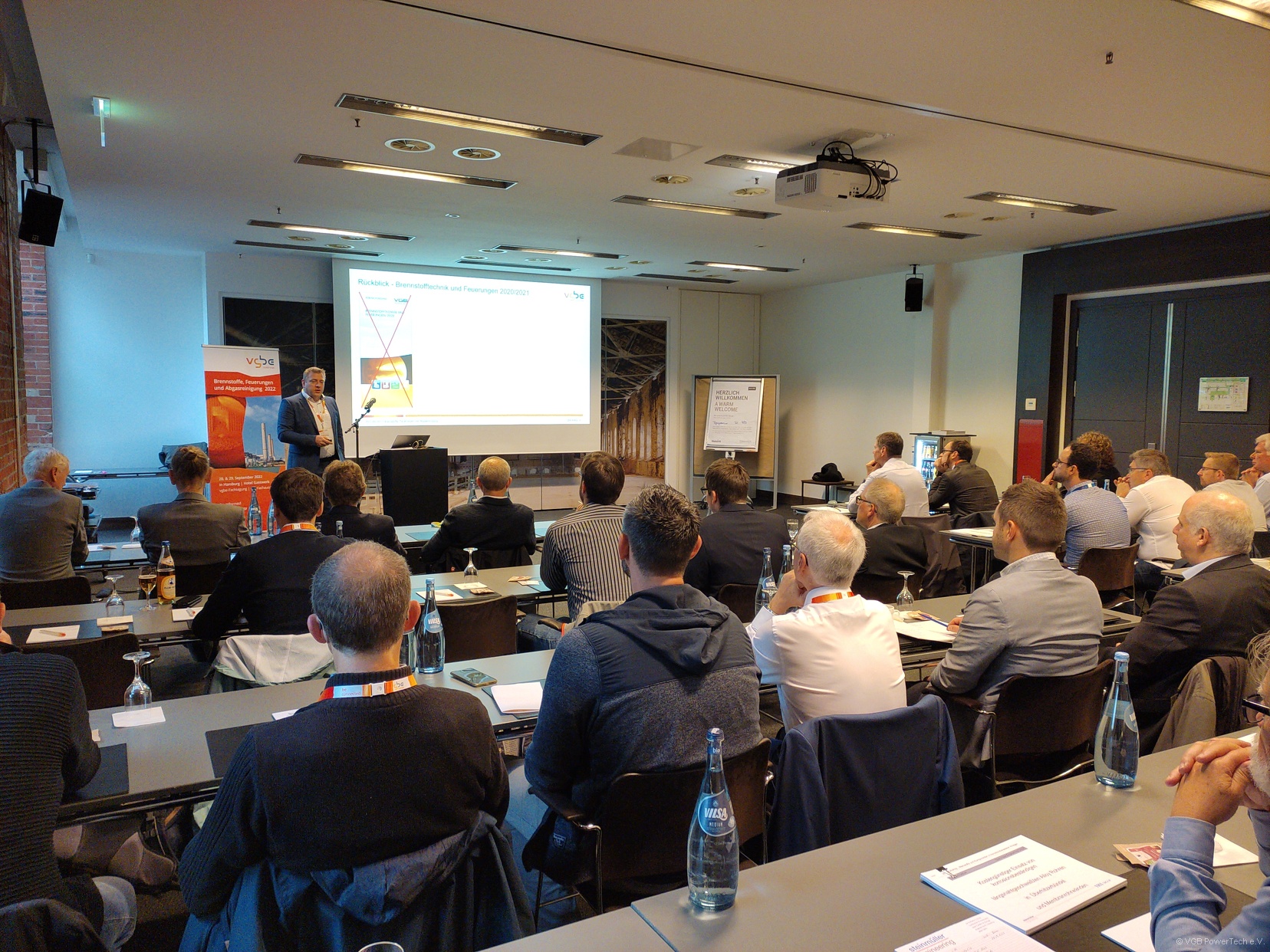
The Conference “Fuels, Firings and Flue Gas Cleaning 2022” took place on September 28 and 29, 2022 at the Hotel Gastwerk in Hamburg. This year’s vgbe conference was held against the historic backdrop of the old gasworks, which first brought light to the streets and houses of Hamburg some 120 years ago. The original event was expanded by the issue of flue gas cleaning, thus enabling an integral view of fuel utilisation and the associated effects on crucial power plant components. Particularly in view of the current supply situation and the restarting of conventional generation capacities that have already been shut down, the focus is increasingly on plant flexibility and the use of different fuels, taking into account the flue gas cleaning capacity. Even if fossil fuels are increasingly used temporarily, the ambitious climate protection goals, which are also achieved with the help of fuels of new provenance (H2, NH3) and the most modern flue gas purification technologies (carbon capture), must not be disregarded now.
The range of topics was accordingly diverse and extended from the use of sensors for vibration measurement, combustion chamber monitoring and corrosion measurement to the use of different materials and fuels in the boiler area and the reduction of mercury, dust and SO2 emissions.
The event was opened by Dr Thomas Eck, Head of the vgbe Competence Centre “Power Plant and Environmental Technologies”. In his contribution he explained vgbe’s view of the future of conventional power plants. For example, in the absence of large, long-term storage options, conventional generation is still indispensable for medium-term security of supply and coal-fired generation is one of the pillars of European electricity and heat generation. Although the age of coal comes to an end, the need for security of supply could prolong the transition period.
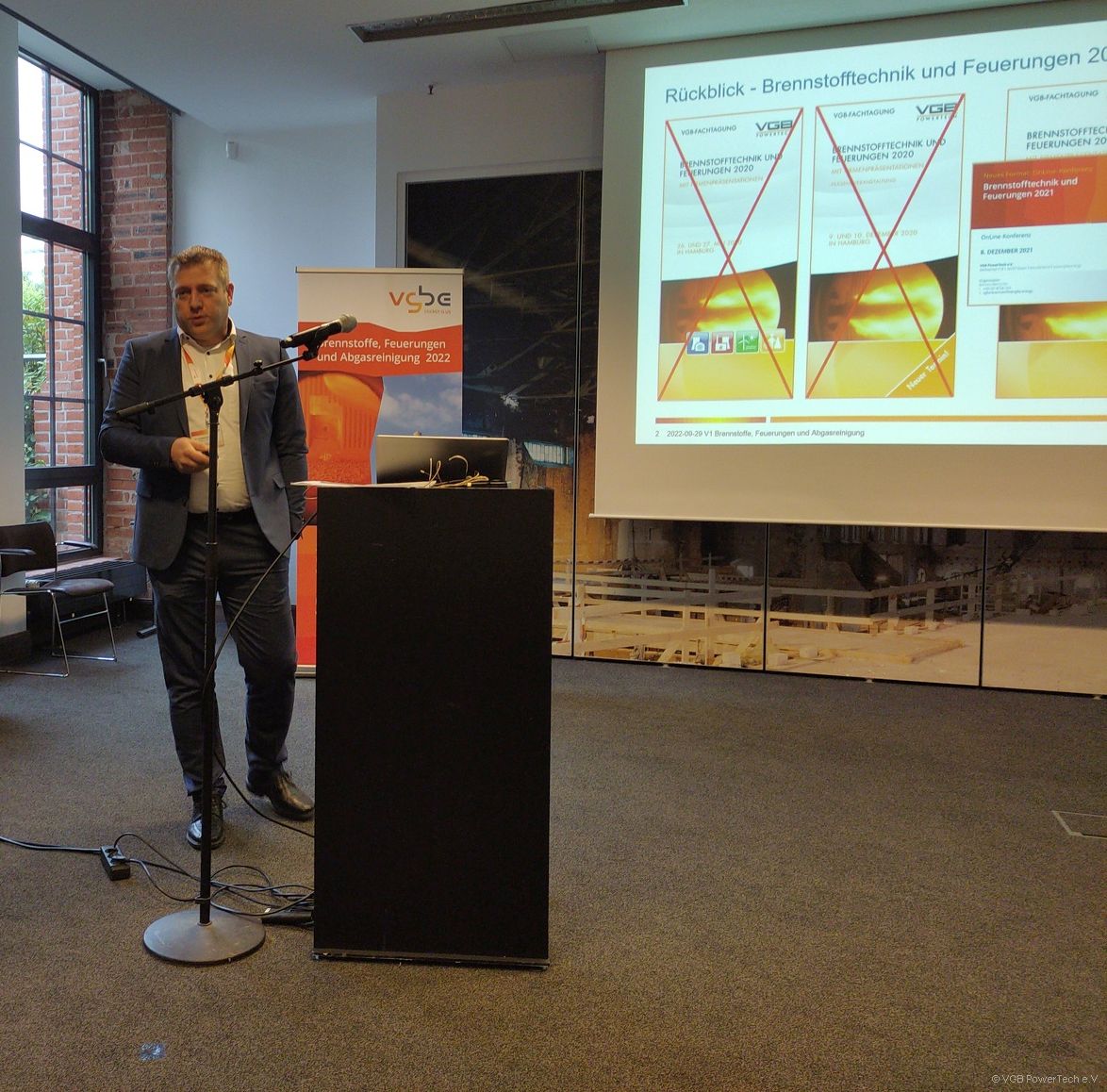
With regard to the use of sensors, the contribution by Adrian Marx et al “Online corrosion monitoring in power plants” is to be highlighted. In this procedure, a sensor is used for the quantitative online detection of the corrosion rate of wall heating surfaces in the evaporator area of power plants. The presented method was developed to market maturity. The passively cooled corrosion sensor can be integrated at any point in an evaporator wall with minimal effort, thus enabling optimal corrosion monitoring and making a valuable contribution to optimised condition-based maintenance (CBM).
In addition to contributions on materials by U. Schadow, in which e.g. longitudinally welded alloy tubes were presented instead of boiler tubes with nickel-based cladding, there were interesting insights into the direct influence of the energy transition on power plant operation and possible alternatives to hydrogen as the fuel of the future.
In his contribution “GKM and the energy transition”, Peter Volkmann impressively described the impacts on a power plant location. The effects that can be observed with regard to personnel, which is becoming an increasingly scarce commodity and decisive for locations, plant operation, fuel safety, etc., present the operators with enormous challenges, which were discussed intensively by the participants.
As an alternative to possibly green hydrogen, ammonia continues to come to the fore as a CO2-free fuel. As an alternative to possibly green hydrogen, ammonia continues to come to the fore as a CO2-free fuel. In his paper ”Ammonia as an alternative fuel”, Dr Jörg Leicher highlighted that ammonia can be used on an industrial scale for heat generation in order to be able to evaluate and overcome the new challenges arising from the use of ammonia for combustion technology, such as flame stabilisation, ignition behaviour and probably high NOXemissions. However, fluidised bed combustion, which has been tried and tested for decades, also offers optimal opportunities to use a wide range of fuels (coal, biomass, sewage sludge, waste, etc.), as presented in the paper “Multifuel firing in the circulating fluidised bed” by Frank Leuschke.
In the area of emission reduction, for example, Dorian Rasche reported on the upgrading of the wet flue gas desulphurisation plant (FGD) at the Lippendorf site. Here, the installation of a tray level above the raw gas inlet, a new suspension and aeration system and the dosing of antifoam agents enabled sulphur separation efficiencies of up to 98 % to be achieved with a sulphur content in the coal of up to 2 %.
With regard to mercury emissions (Hg), Dr. Jan Schütze presented and evaluated different technical processes for reducing Hg emissions during coal combustion in terms of applicability, separation efficiencies and costs.
After the event could not take place in presence for four years due to its biennial rhythm and the pandemic, the feedback from the participants was very positive. The new format including waste gas cleaning technology was welcomed.
vgbe events, such as the Fuels, Firings and Waste Gas Cleaning Conference, offer participants an ideal platform for professional discussions following the lectures and on the fringe of the event as well as at the get-together. Ample opportunity is provided to expand and refresh existing contacts as well as to establish new relationships. This vgbe conference showed that the upcoming challenges of the energy transition and currently in connection with securing the energy supply can only be overcome together with all parties involved, i.e., manufacturers, operators, politicians and consumers. For the solution of these problems and in coping with these tasks, vgbe offers a technology-open framework, which was again optimally used in Hamburg’s Gastwerk.
The vgbe organisation team would like to thank all speakers and participants who contributed to the successful outcome of the conference.
The next vgbe conference on “Fuels, Firings and Flue Gas Cleaning” is planned for autumn 2024. Information on this event will be announced in good time on the vgbe event platform, in the vgbe energy journal and in the vgbe newsletter.
